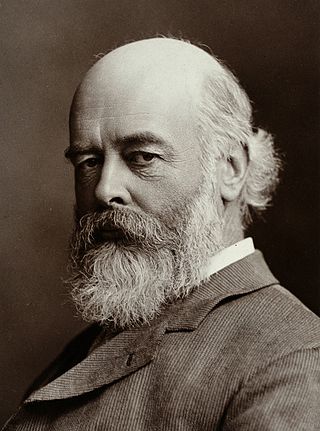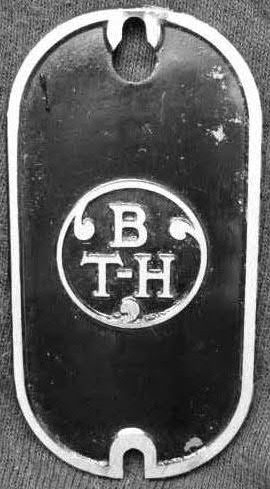
The Birmingham Small Arms Company Limited (BSA) was a major British industrial combine, a group of businesses manufacturing military and sporting firearms; bicycles; motorcycles; cars; buses and bodies; steel; iron castings; hand, power, and machine tools; coal cleaning and handling plants; sintered metals; and hard chrome process.

Rugby is a market town in eastern Warwickshire, England, close to the River Avon. At the 2021 census, its population was 78,117, making it the second-largest town in Warwickshire. It is the main settlement within the larger Borough of Rugby, which had a population of 114,400 in 2021.

British Leyland was an automotive engineering and manufacturing conglomerate formed in the United Kingdom in 1968 as British Leyland Motor Corporation Ltd (BLMC), following the merger of Leyland Motors and British Motor Holdings. It was partly nationalised in 1975, when the UK government created a holding company called British Leyland, later renamed BL in 1978. It incorporated much of the British-owned motor vehicle industry, which in 1968 had a 40% share of the UK car market, with its history going back to 1895. Despite containing profitable marques such as Jaguar, Rover, and Land Rover, as well as the best-selling Mini, BLMC had a troubled history, leading to its eventual collapse in 1975 and subsequent part-nationalisation.

Sir Oliver Joseph Lodge, was a British physicist and writer involved in the development of, and holder of key patents for, radio. He identified electromagnetic radiation independent of Hertz's proof and at his 1894 Royal Institution lectures, Lodge demonstrated an early radio wave detector he named the "coherer". In 1898 he was awarded the "syntonic" patent by the United States Patent Office. Lodge was Principal of the University of Birmingham from 1900 to 1920.
Triumph Engineering Co Ltd was a British motorcycle manufacturing company, based originally in Coventry and then in Meriden. A new company, Triumph Motorcycles Ltd, based in Hinckley, gained the name rights after the end of the company in the 1980s and is now one of the world's major motorcycle manufacturers.

British Thomson-Houston (BTH) was a British engineering and heavy industrial company, based at Rugby, Warwickshire, England. Originally founded to sell products from the Thomson-Houston Electric Company, it soon became a manufacturer using licences from the American company. They were known primarily for their electrical systems and steam turbines.

Brynmawr is a market town, community and electoral ward in Blaenau Gwent, Wales. The town, sometimes cited as the highest town in Wales, is situated at 1,250 to 1,500 feet above sea level at the head of the South Wales Valleys. It grew with the development of the coal mining and iron industries in the early 19th century. Until the reorganisation of local authorities in 1974, Brynmawr was administered as part of the county of Brecknockshire.

Woodley is a town and civil parish in the Borough of Wokingham, in Berkshire, England. Woodley is 4 miles (6.4 km) east of Reading and adjoined to Earley which is 2 miles (3.2 km) to the west of the town and Woodley is 5 miles (8 km) from Wokingham. Nearby are the villages of Sonning, Twyford, Winnersh, Hurst and Charvil.

Marshall, Sons & Co. was a British agricultural machinery manufacturer founded in 1848. The company was based in the Britannia Iron Works, Gainsborough, Lincolnshire. Early production was of steam engines and agricultural machinery. Later production included diesel tractors such as the Field Marshall, Track Marshall and former Leyland wheeled tractors.
Lucas Industries plc was a Birmingham-based British manufacturer of motor industry and aerospace industry components. Once prominent, it was listed on the London Stock Exchange and was formerly a constituent of the FTSE 100 Index. In August 1996, Lucas merged with the American Varity Corporation to form LucasVarity.

Dunlop Tyres is a brand of tyres which is managed by different companies around the world. It was founded by pneumatic tyre pioneer John Boyd Dunlop in Belfast, Ireland, in 1888.
Smiths Group plc is a British, multinational, diversified engineering business headquartered in London, England. It operates in over 50 countries and employs 15,000 staff. Smiths Group is listed on the London Stock Exchange and is a constituent of the FTSE 100 Index.

Midland Red was a bus company that operated in The Midlands from 1905 until 1981. It was one of the largest English bus companies, operating over a large area between Gloucester in the south and Derbyshire in the north, and from Northampton to the Welsh border. The company also manufactured buses.
Flint East was an automobile component production complex owned by Delphi Corporation in Flint, Michigan. The complex, parts of which were over 100 years old, was located on Dort Highway, stretching along Robert T. Longway Boulevard past Center Road. The plant produced numerous automotive components, including instrument panels, instrument clusters, spark plugs, filters, air meters, fuel pumps and other parts. Flint East once employed nearly 14,000 people, but by 2007, the number was down to nearly 1,100 hourly workers. The plant closed entirely in November 2013 and the remaining buildings were razed. In 2017, Phoenix Investors, a Wisconsin-based commercial real estate firm, purchased the land.
Alexander Marshall Lodge (1881–1938) was an English inventor who did early work and held some patents on the spark plug. He and his brother Francis Brodie Lodge (1880–1967) founded a company, Lodge Brothers, in 1903 - which eventually, following a merger with the Mascot Company in 1913, was renamed Lodge Plugs Ltd; it was based in Rugby, Warwickshire. Much of their work was developed from research by their father, Sir Oliver Lodge.

The British Ever Ready Electrical Company (BEREC) was a British electrical firm formed in 1906 as the export branch of the American Eveready Battery Company. In 1914 it became independent of its American parent company.

The BSA M20 is a British motorcycle formerly made by Birmingham Small Arms Company (BSA) at their factory in Small Heath, Birmingham. Although initially viewed as a near failure by the War Office in 1936, the M20 evolved into one of the longest serving motorcycles in the history of British military motorcycling, as well as becoming the most numerous type produced for World War II with 126,000 in active service. Many are still in use around the world today.
ACDelco is an American automotive parts brand owned by General Motors (GM). Factory parts for vehicles manufactured by GM are consolidated under the ACDelco brand, which also offers aftermarket parts for non-GM vehicles. Over its long history it has been known by various names such as United Motors Corporation, United Motors Service, and United Delco. The brand "ACDelco" should not be confused with GM's former AC Delco Systems, formed in 1994 from the merger of AC Rochester Division and Delco Remy Division. In 1995 Delphi Automotive Systems absorbed AC Delco Systems.

British shadow factories were the outcome of the Shadow Scheme, a plan devised in 1935 and developed by the British government in the buildup to World War II to try to meet the urgent need for more aircraft using technology transfer from the motor industry to implement additional manufacturing capacity.

Morrison-Electricar was a British manufacturer of milk floats and other battery electric road vehicles (BERV). Their first vehicle was built for a bakery in 1933, and the company ceased to exist when it was finally sold to M & M Electric Vehicles in 1983.













